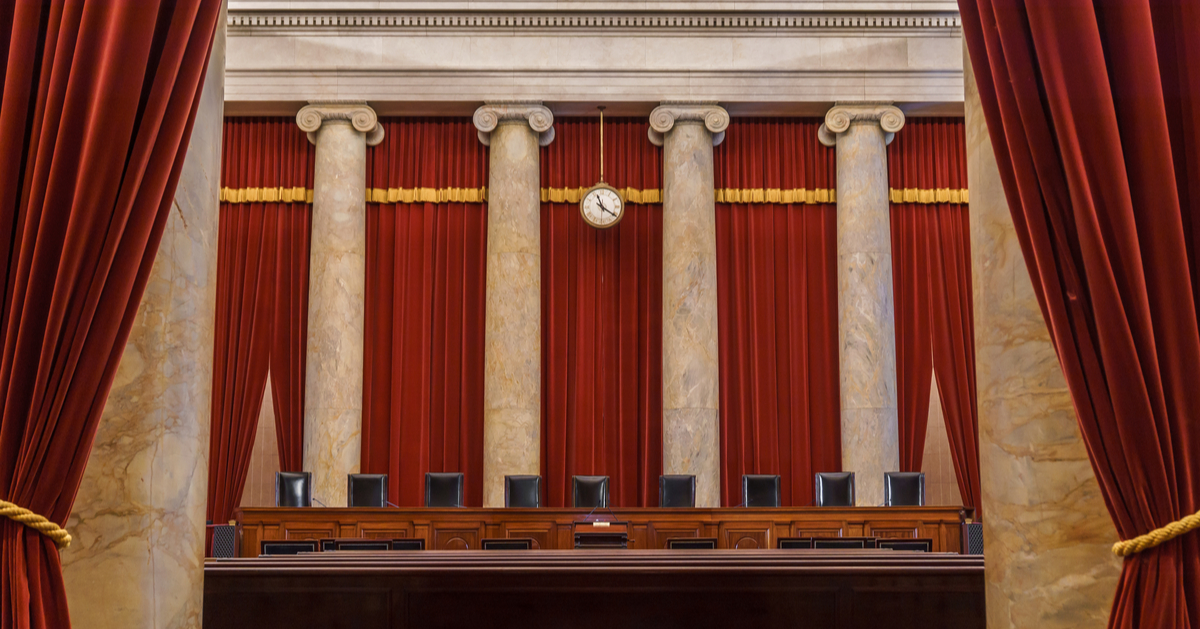Supreme Court rules in favor of due process claims by female death row inmate in Oklahoma
The conservative-leaning majority Supreme Court has generally looked unfavorably upon appeals from death row inmates, but there are exceptions to the rule.
On Tuesday, the Supreme Court surprisingly ruled 7-2 in favor of Brenda Andrew, the only female on death row in Oklahoma, and her claim that prosecutors had unfairly prejudiced a jury by focusing on her sex life during a murder trial, NBC News reported.
Andrew was convicted by a jury and sentenced to death in 2004 for the murder of her estranged husband, Robert Andrew, in 2001, but thanks to the high court, she can now pursue a due process clause appeal to potentially have that conviction and death sentence overturned.
Murder conviction appealed
Per NBC News, Andrew was convicted of being part of an alleged scheme with her boyfriend, James Pavatt, who was also convicted and sentenced to death, to murder her estranged husband, who was killed in the garage by a pair of shotgun blasts, and collect the proceeds of a life insurance policy.
During the trial, prosecutors had focused sharply on Andrew's sex life, including her extramarital affairs, the provocative way she dressed -- including the kind of underwear she wore -- how she behaved around other men, and even the type of mother she was to her children.
Andrew's attorneys argued on appeal that much of the evidence submitted by prosecutors was irrelevant and prejudicial to the jury, and though both state and federal appellate courts seemed to agree that some of the evidence was irrelevant, both declined to rule that it had been prejudicial and her conviction was upheld.
Due process rights violated by irrelevant and prejudicial evidence
Now, however, in an unsigned order released on Tuesday, a majority of the Supreme Court determined that the appellate courts got it wrong and should have allowed Andrew's claim of due process rights violations to move forward on appeal.
The majority cited as precedent the 1991 ruling in Payne v. Tennessee, in which the court concluded that the 14th Amendment's Due Process Clause provides protection when "evidence is introduced that is so unduly prejudicial that it renders the trial fundamentally unfair."
As such, the high court vacated the prior judgment of the 10th Circuit Court of Appeals and remanded the case for the appellate panel to once again consider whether Andrew's due process rights were violated and the jury unfairly prejudiced by the prosecutors' inclusion of irrelevant evidence about her sex life.
Specifically, the justices asked the appellate panel to consider "whether a fair-minded jurist could disagree that the evidence 'so infected the trial with unfairness' as to render the resulting conviction or sentence 'a denial of due process.'"
However, according to The New York Times, Justice Clarence Thomas, joined by Justice Neil Gorsuch, dissented and argued that the inclusion of the irrelevant sex life information during the trial didn't matter since there was sufficient evidence otherwise that proved she was guilty of scheming with her accomplice boyfriend to murder her husband and collect a life insurance payout.
Thomas further argued that it was the appellate courts that had been correct to dismiss Andrew's claims and his colleagues on the bench who wrongfully interpreted the Payne decision as precedent.
Responses to the ruling
"We are pleased that the court looked closely at the State of Oklahoma’s manipulation of irrelevant and blatantly sexist evidence during Ms. Andrew’s trial," one of the inmate's attorneys, Jessica Sutton, said in a statement, per NBC, and the appellate court will now "determine whether such evidence was so prejudicial as to render Ms. Andrew’s trial fundamentally unfair."
Of course, state prosecutors were displeased by the Supreme Court's ruling, and a spokesperson for Oklahoma Attorney General Gentner Drummond said, "We are disappointed but respect the court's decision."






